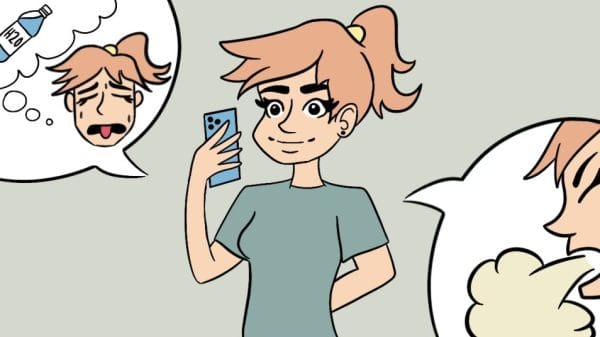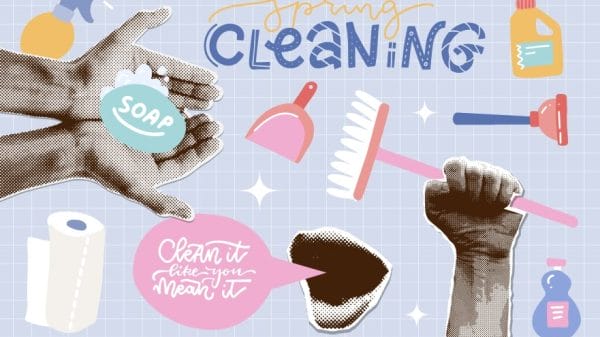As Halloween creeps closer, one news story is scaring parents in Europe and the US. On October 16, Belfast Live reported that police located a County Derry 14-year-old who had been missing for 55 hours. Apparently, he participated in “the 48-hour challenge,” a Facebook game encouraging kids to run away from home for two days. Now, news websites are spreading this story and parents are sharing it as a warning.
The article extensively quotes the teen’s mother, who said, “This is a competition and it’s sick. The anxiety it left our family in is unspeakable.” More awful still is her description of the aftermath: “There was not even a moment of remorse … When the police brought my child home, I could see posts of selfies from the police car.” Oh, and what motivated her child to stay past the 48-hour mark? A player’s “score” increases whenever someone mentions them on Facebook in the time they’re missing.
Spooky, right? It’s like a Black Mirror episode … especially in the sense that it may be fiction.

Debunking the 48-Hour Challenge
The 48-hour challenge does not actually exist. Snopes, the indispensable website for determining the truthfulness of online stories and urban legends, declared this one “False.” In summary, fact checker Kim LaCapria observes that Belfast Live’s only source is an unnamed mother. Despite alleged police involvement (the “selfies from the police car”), no officer is quoted. Their article does not mention, let alone quote, who exactly told this woman of the game and her child’s participation. Snopes paints the damning picture of a story that just cannot be verified.
A little extra research shows that the majority of articles from other publications use Belfast Live as their singular source. Some pieces link the game to “a 14-year-old British girl” (distinct from the Co Derry teen), but don’t include a source or any further information. Some also quote an unnamed Facebook spokesperson saying the company will investigate the game – though I can’t find such a statement anywhere outside these articles.
Most curious is a Metro article from October 19 describing an 11-year-old from Hull, England who went missing for a day. According to the text, Leah Taylor “has said very little about why she decided to run away and has denied being spurred on by the 48-Hour Challenge.” Her mother doesn’t believe her. Her grandmother does, but she spoke out against the challenge anyway.
For their part, Metro seems to believe Taylor. Their later write-up about the 48-hour challenge admits, “So far there have been no confirmed reports of someone taking part.” Other news sites caught on: Miami Herald mentions Snopes in their article, “48-hour challenge: is the disappearing ‘game’ a hoax?” Yahoo! News’s Australian and UK sites also mentions the fact-checking site’s conclusion … in one sentence, at the very bottom, after almost 500 words.
Personal Analysis
Personally, all I need to assume the story’s falsehood is a little common sense. They’re asking us to believe that children are hiding out in the woods for a Facebook challenge. Plenty of reasons exist for why a child would run away from home. Fake internet points is not an especially compelling reason for taking one’s chances in sleeping in a forest or an alley – not compared to, say, the threat of abuse.
Believing this requires an extreme, condescending view on how social media affects millennials. Some reporters revealed their own biases while writing on this story, including Dave MacLean of The Independent. He wrote, “Social media, and Facebook in particular, is a fertile space for dumb trends and challenges to spread.”
Of course, it’s easy for fake stories to spread – as anyone conscious during these past two years could see. And sometimes for parents, their need to protect their kids right now can override everything else. News media know this, and have used it to boost their ratings. Remember rainbow parties? Sex bracelets? Smoking crushed bedbugs because they supposedly contain a hallucinogenic substance? None of that happened either. The 48-hour challenge seems poised to join this pantheon of parental panics.
So, thank goodness for Snopes, Miami Herald, Yahoo! News (sorta), and other fact-checkers out there. Heck, I’d argue that the real story here is that Snopes isn’t just still relevant, but more important than ever.
Now, one question remains: how did Belfast Live’s original article come to be? I don’t have any information supporting one conclusion or another, so I won’t speculate. That’s just ethics.
Some challenges are real – and not terrifying. Here’s an article about a British restaurant’s 96oz steak challenge.
Featured Image Via












